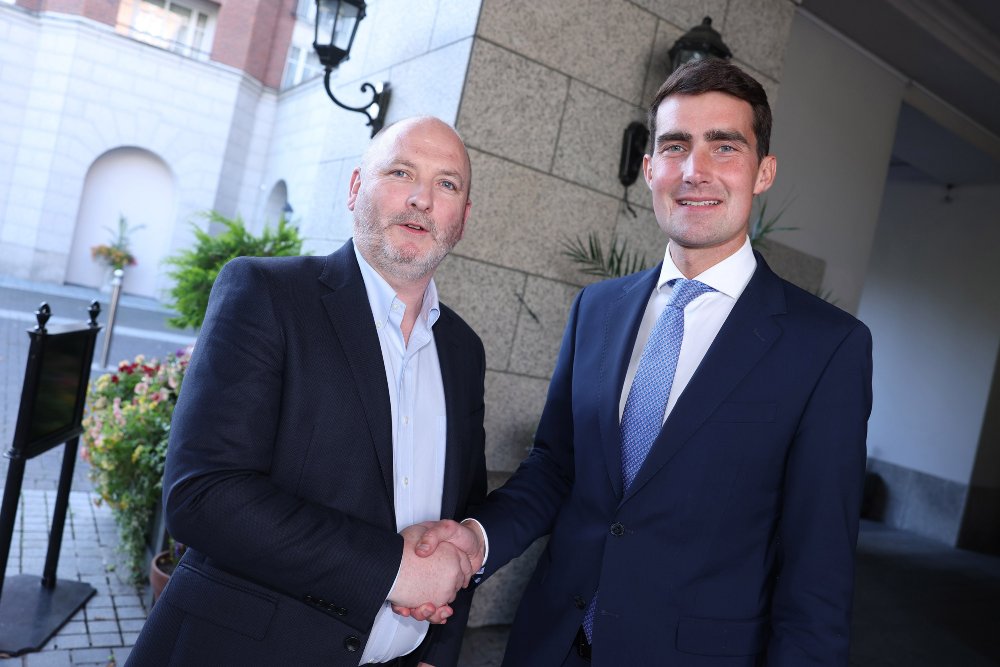In its pre-Budget 2026 submission PwC Calls for a major tax policy reset to boost Ireland’s competitiveness.
PwC Ireland has launched its 2026 Pre-Budget Submission calling for a comprehensive reset of tax policy across multiple areas to strengthen Ireland’s position as a leading destination for investment and innovation.
The consulting firm’s submission identifies seven key areas requiring urgent attention: housing policy, support for private businesses, financial services enhancement, foreign direct investment diversification, tax regime simplification, and energy transition acceleration.
“In a world of increasing global instability, rising uncertainty and heightened international tax competition, the need to bolster Ireland’s competitive offering has never been more apparent”
Among the most significant proposals, PwC advocates for reducing Capital Gains Tax from 33% to 20% – currently one of the highest rates in Europe – to help private businesses scale and compete globally.
The firm also calls for reforms to the problematic Residential Zoned Land Tax (RZLT) and the introduction of targeted measures to establish Ireland as an artificial intelligence center of excellence.
“In a world of increasing global instability, rising uncertainty and heightened international tax competition, the need to bolster Ireland’s competitive offering has never been more apparent,” said Paraic Burke, Tax Leader at PwC Ireland.
“With increasing geopolitical risks and uncertainties, Ireland must take action to control our own controllables.”
Housing crisis demands urgent action
PwC emphasises that tax policy can play a vital role in addressing Ireland’s housing crisis, with reforms needed to attract greater private investment into the housing market. The submission highlights critical issues with the RZLT implementation that require immediate attention.
The firm notes that the Real Estate Investment Trusts (REITs) regime is underperforming, with only one in four REITs launched still operating today. PwC recommends measures to improve the REIT regime’s effectiveness in attracting the foreign and domestic capital needed to meet Ireland’s housing demands.
Additional housing-related proposals include extending the Residential Rebate Scheme, implementing a temporary VAT reduction on new affordable homes, and reducing Capital Gains Tax for retrofitted properties to promote sustainability.
Supporting private business growth
Private businesses face significant challenges in raising funds, managing costs, and succession planning, according to the submission.
PwC’s proposed CGT reduction to 20% aims to promote business transfers to the next generation of Irish business leaders.
The firm also calls for increases to Capital Acquisition Tax lifetime thresholds, which haven’t kept pace with inflation, and recommends raising the small benefit exemption to €2,500 while removing the five-benefit restriction.
Positioning Ireland for AI leadership
To diversify foreign direct investment beyond traditional technology and pharmaceutical sectors, PwC recommends establishing Ireland as an AI center of excellence.
The proposal includes 100% capital allowances in the initial year of investment for AI companies and extending the Special Assignee Relief Programme to 2030.
“Ireland also needs to diversify tax policy and put plans in place to attract the next generation of multinationals,” Burke explained.
“We should seek to attract new industries, most notably, one of the fastest growing industries – artificial intelligence.”
Simplifying the tax code
PwC highlights the growing complexity of Ireland’s tax system, noting that the Corporation Tax Return has expanded from 22 pages in 2010 to 62 pages by the end of 2024.
The firm advocates for a “Tax Simplification Roadmap” to provide a clear, long-term plan for reducing compliance burdens.
The submission also calls for urgent efforts to simplify Ireland’s interest regime and resolve practical issues with the recently introduced participation exemption for foreign dividends.
Energy transition and global tax challenges
To accelerate Ireland’s energy transition, PwC recommends targeted tax incentives that provide upfront relief for renewable infrastructure investment and low-carbon materials for public infrastructure projects. The firm also suggests extending accelerated capital allowances for energy efficient equipment beyond December 2025.
Addressing global tax developments, Burke concluded: “The global environment is facing significant upheaval following the new US Administration’s rejection of the OECD Global Tax Deal. The US stance threatens the viability of the entire regime, with the possibility of retaliatory tariffs or withholding taxes that could further strain global trade and economic growth.”
He emphasised the importance of Ireland remaining “nimble and engaged at the OECD and EU level with respect to Pillar Two” to maintain the country’s competitiveness amid these international uncertainties.
The submission positions Budget 2026 as a critical opportunity for Ireland to implement changes that could significantly influence the country’s future economic trajectory across housing, climate action, and international competitiveness.
-
Bank of Ireland is welcoming new customers every day – funding investments, working capital and expansions across multiple sectors. To learn more, click here
-
For support in challenging times, click here
-
Listen to the ThinkBusiness Podcast for business insights and inspiration. All episodes are here. You can also listen to the Podcast on:
-
Spotify
-
SoundCloud
-
Apple





